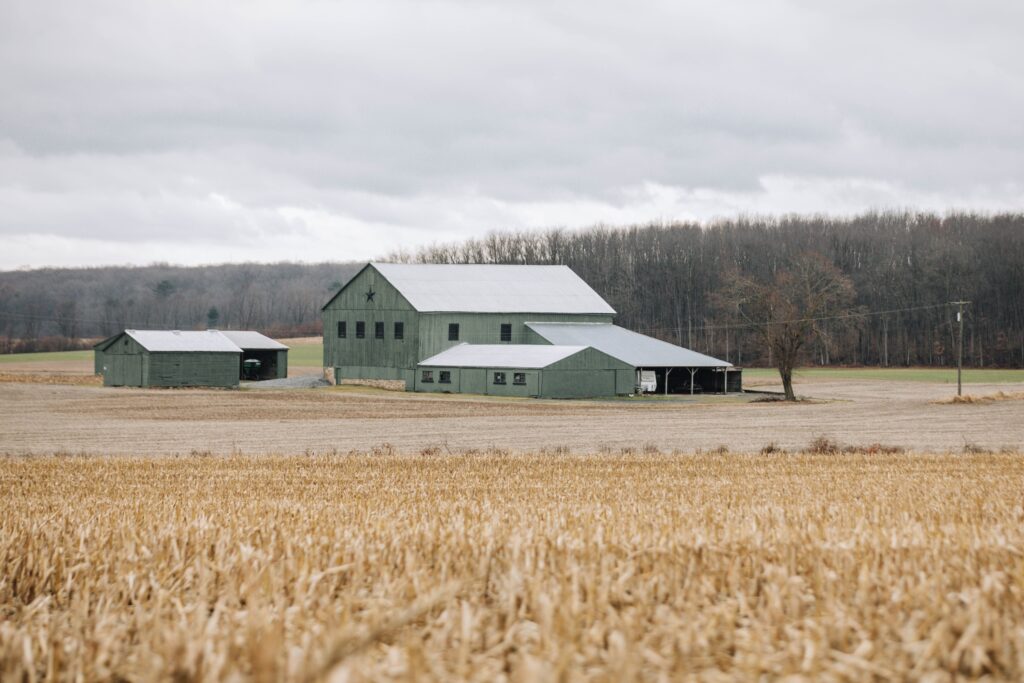This story first appeared in PA Local, a weekly newsletter by Spotlight PA taking a fresh, positive look at the incredible people, beautiful places and delicious food of Pennsylvania. Sign up for free here.
Linda Then and her wife Sandy have a lot of mouths to feed. There’s the Jersey steer, the burly Clydesdale, the Nigerian dwarf goats, pot-bellied pigs and eight house pets, just to name a few.
Their four-acre property in Centre County, dubbed Barking Tree Farm, is a bustling animal sanctuary and rescue that relocated from Vermont several years ago.
“My wife and I moved down here [to be closer to family] and brought all the animals with us,” Then told PA Local by phone. “I wasn’t going anywhere without them.”
Now she can’t, really. Farmers and animal caretakers don’t just up and leave. Feeding schedules and maintenance dictate it. But sometimes life beyond the homestead beckons.
After all, farmers also have weddings to attend, trips to take and crises to weather, like when the burly Clydesdale accidentally broke Sandy’s leg.
So who’s watching the animals when they’re gone? Enter farm sitters, professionals hired to keep an eye on things via regular check-ins or around-the-clock stays.
Pennsylvania has tens of thousands of farms, the vast majority of them family-owned.
Beth Stultz-Hairston, president of Pet Sitters International, said their industry is growing fast, but most sitters don’t work for commercial farms because general liability policies normally contain a “livestock exclusion.”
Pet Sitters International bills itself as the world’s largest educational association for related businesses, with approximately 4,000 members — including almost 200 in Pennsylvania.
Stultz-Hairston said 40% of Pennsylvania members reported caring for livestock and 25% indicated they care for horses — “both slightly higher than the membership average.” (It’s unclear how many serve commercial clients versus noncommercial ones like Barking Tree.)
Deanne George of Dee’s Farm and Pet Sitting in Palmerton, Carbon County, has done this work for a decade and had few contemporaries when she started.
“The whole thing was you’re going to make your own schedule. You can be more flexible, never thinking how life was going to change once word of mouth got out,” she said.
Her clients, all within 20 miles or so of Palmerton, run the gamut. The area has homesteaders, hobby farms, horse stables and even apiaries.
The holiday season is busy, but the calls usually spike during summer.
“There was a week this past June that we did 14 drop-in visits between farms and small animals,” George recalled. “I do not recommend that. We were slammed and even had to turn work down because there was no possible way.”

Work loads vary between clients. Some have one horse, while others have 30.
George’s prices are shaped by location and needs.
“If there’s a lot of medication involved, that comes into play. I don’t charge a travel fee or anything, but I could be in Northampton County, Lehigh County, Carbon County and Monroe County all in one day.” The longest she’s been hired was for a two-week period.
In Port Matilda, Centre County, Joanna Taylor started her farm- and pet-sitting business, Mountain Pets, after retiring from a 30-year career with the U.S. Fish and Wildlife Service. She spent her first eight years at the agency caring for endangered birds.
“I’m using my personal experience with farm animals and professional experience to help other owners out. Because it’s really hard to find somebody who has experience,” Taylor said.
Before hiring farm sitters, owners might have turned to family or a knowledgeable neighbor. Some still do so, given the industry’s high overhead that can make extra costs hard to afford.
Taylor, who charges $50 an hour, says her work can take hours a day for each client, depending on the size and complexity of an operation. At least one of her customers has monkeys.
“Doing farm work is never going to take you exactly one hour and 15 minutes every time,” Taylor explained. “Things happen differently every day. Something breaks, somebody isn’t where they’re supposed to be, and you have to spend time putting things back and fixing things.”
The worst-case scenario is an animal taking ill. Emergency contacts and veterinarians are identified in advance and animals are observed for signs of trouble that the average person without farm experience might not notice, like the symptoms of colic in horses.
“Things can go south with horses really fast,” Taylor noted.
Farm sitters don’t go in blind. Taylor does a meet and greet first. She also has clients fill out forms providing a roadmap and detailed instructions for their animals — which ones must be fed together and which ones can’t be, which ones are irascible versus downright clingy.
Linda Then said she first learned of Taylor from a flyer at the local ZenPet location, and initially hired her to cover the farm during Penn State home games.
But when Sandy was recovering from her broken leg, Linda was sidelined by a bout of back pain, and Taylor quickly became indispensable.
“We were still hobbling around, you know, doing our best to take care of the indoor animals,” Linda recalled. “Joanna would leave and do other clients and come back in the evening to feed for us. That was for several weeks, and that got us through a very bad time.”
Linda, momentarily distracted by a hay delivery that touched off an eruption of animal sounds on her end of the line, stops before concluding of Taylor: “She was a godsend.”
BEFORE YOU GO… If you learned something from this article, pay it forward and contribute to Spotlight PA at spotlightpa.org/donate. Spotlight PA is funded by foundations and readers like you who are committed to accountability journalism that gets results.



